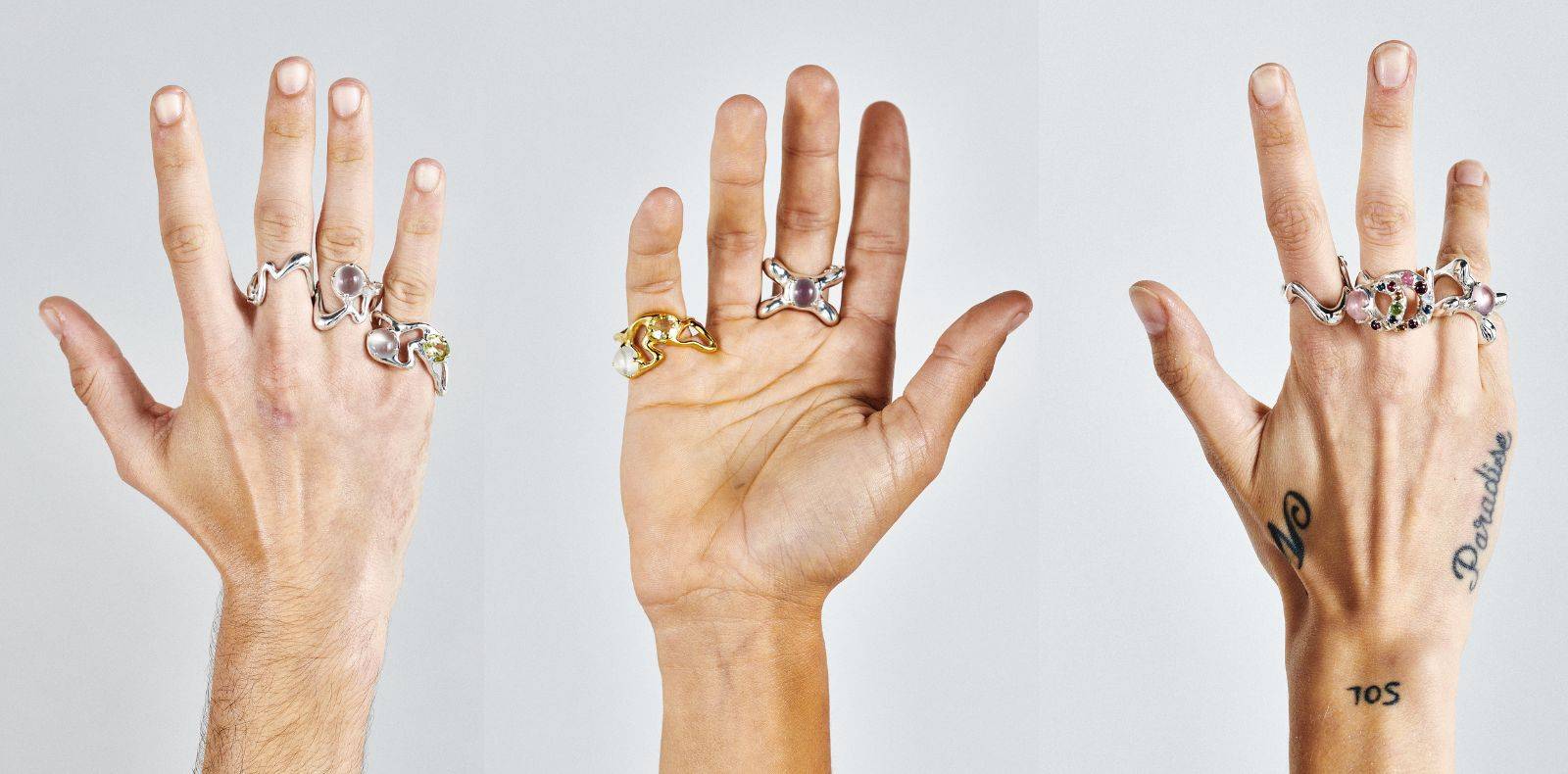
28

28
Cannes 2024 : est-ce ce Jacques Audiard peut gagner la Palme d’Or ?
Récompensé en 2015 avec Dheepan, le réalisateur français Jacques Audiard revient avec une comédie musicale aux accents queer. Notre critique de cet ovni dévoilé au Festival de Cannes 2024 qui met en scène Zoe Saldana et pourrait être un candidat sérieux pour la Palme d’or.
By Olivier Joyard,
By Olivier Joyard.
Publié le 28 mai 2024. Modifié le 4 mars 2025.
If there is one thing Jacques Audiard can’t be blamed for, it is boring us. While the festival can often dwell on the world’s atrocities with a fair, yet serious tone, Emilia Perez has brought color, sound, and a sometimes epic breath of fresh air. His tenth film is a new kind of musical, which stages the story of the transition of a Mexican drug lord’s transformation into a trans woman activist advocating for missing persons (Karla Sofia Gascon), under the gaze of his former wife (Selena Gomez) and a young lawyer (Zoe Saldana). The pitch is so far-fetched, so far from any realistic aim at first sight, that we have to accept it as it is. Good news, it is the topic of the film presented at the 2024 Cannes Film Festival.
Emilia Perez, Jacques Audiard’s new film starring Zoe Saldana, Karla Sofia Gascon and Selena Gomez, unveiled at the 2024 Cannes Film Festival
In a career spanning three decades, Jacques Audiard, 72, has always tackled the question of masculinity from a critical angle. His first feature film was See How They Fall in 1994 and one of his latest ones, The Sisters Brothers, hedged in a toxic patriarchal figure to the point of suffocation. Here, he dives back into that bath, but with a plot twist. The first half of the film follows the protagonist on her path to a gender-affirming surgery that takes her to Israel. Manitas, a cartel leader, is now Emilia Perez and returns home incognito, after feeling truly herself at last. But this is no realistic drama. Echoing the journey of its heroine, the film itself explores the notion of genre, mixing singing and dancing sequences during which the characters express their feelings and ideas in motion – “Changing the body changes society”, the brilliant Zoé Saldana sings. We’re simultaneously sent to Hollywood in the 1950s with the musical aspect, to an explosive cartel thriller, and to today’s world with the issue of identities.
Paradoxically, the film has its downsides, which can also make it more appealing. Jacques Audiard charms us, but once the pure charm settles, the director also proves to be very voluntarist and less light-hearted at times. His desire to stamp a queer identity on the protagonist and on the film sometimes seems to give him a free pass to modernity. We don’t question his sincerity, but perhaps his relevance in dealing with a topic that he looks at with the curiosity of those who are not directly concerned by the issue. We’re not asking a feature or a filmmaker for a certificate of commitment or moral standing, but on second thought, something doesn’t sound completely in sync with this general idea of coming out of violence through coming out of the masculine. The final part of Emilia Perez, which we won’t reveal here, suggests that the notion of masculinity is still more important to Audiard than that of trans-identity. That is his absolute right, but his artistic stroke is not crystal clear in the film, since it chooses a transition as its starting point.
Can Emilia Perez win the Palme d’Or?
Imperfect as it may be, Emilia Perez remains a pleasant film to watch, which doesn’t shy away from taking formal and rhythmic risks. We would be surprised if it didn’t make the shortlist of the jury presided over by Greta Gerwig on Saturday evening. If the Palme d’Or should elude him – we still have our favorite, Bird by Andrea Arnold – the film deserves at least an award for the staging, not to mention the incredible trio of actresses who gave life to the project. Will Karla Sofia Gascon, Zoe Saldana and Selena Gomez stand together on the stage of the Grand Théâtre Lumière? It would be well-earned, as they give the film an immediate human dimension and considerable vital energy. All three of them are creating images that we would like to see more on screen.
Emilia Perez (2024) by Jacques Audiard, starring Selena Gomez and Zoe Saldana, coming out on August 28th, 2024.
Traduction Emma Naroumbo Armaing
S’il y a bien un reproche que l’on ne peut pas faire à Jacques Audiard, c’est de nous ennuyer. Dans un festival souvent accroché aux malheurs du monde avec un esprit de sérieux – souvent justifié -, Emilia Perez a apporté des couleurs, du son, un souffle parfois épique. Comédie musicale nouveau genre, son dixième film raconte la transformation d’un baron de la drogue mexicain en une femme trans militante en faveur des personnes disparues (Karla Sofia Gascon), sous le regard d’une jeune avocate (Zoe Saldana) et de celle qui fut son épouse (Selena Gomez). Le pitch est si improbable, si loin de toute visée réaliste a priori, qu’il faut l’accepter tel qu’il l’est. Ce qui tombe bien : c’est un peu le sujet du film présenté au Festival de Cannes 2024.
Emilia Perez, le nouveau film de Jacques Audiard dévoilé au Festival de Cannes 2024 avec Zoe Saldana, Karla Sofia Gascon et Selena Gomez
En trois décennies de carrière (il a désormais 72 ans), Jacques Audiard a toujours travaillé la question du masculin sous un angle critique. Son premier long-métrage, en 1994, s’appelait Regarde les hommes tomber ; l’un de ses derniers, Les Frères Sisters, encerclait jusqu’à l’étouffer une figure patriarcale toxique. Ici, il plonge à nouveau dans ce bain, mais avec un twist. La première partie montre le chemin de son héroïne vers une opération de « confirmation de genre » qui la mène en Israël. Chef de cartel, Manitas devient Emilia Perez et rentre au pays incognito, enfin devenue elle-même. Mais nous ne sommes pas dans un drame réaliste. En écho à son héroïne, le film lui-même cherche le trouble dans le genre, mêlant des séquences chantées-dansées où les personnages expriment des sentiments et des idées (« Pour changer la société, il faut changer les corps », chante la géniale Zoé Saldana) avec de l’action. Nous sommes à la fois en 1950 à Hollywood versant musical, dans un thriller de cartel explosif et dans le monde de 2024 qui s’interroge sur les identités.
Le film, c’est son paradoxe et peut-être aussi son charme, ne manque pourtant pas de problèmes. Jacques Audiard séduit, mais une fois la pure séduction actée, il se montre aussi très volontariste, pas toujours léger. Le désir de donner une identité queer à son personnage et à son film semble parfois lui servir de passeport vers la modernité. On ne questionne pas sa sincérité, mais peut-être sa pertinence à évoquer des sujets qu’il regarde avec la curiosité de ceux qui ne sont pas directement concernés. On ne demande pas à un film ou à un cinéaste un certificat de moralité ou d’engagement, mais quelque chose sonne moins juste qu’il n’y parait dans l’idée centrale que la sortie du masculin signifierait la sortie de la violence. L’ultime partie d’Emilia Perez, que l’on ne dévoilera pas, laisse penser que le sujet de la masculinité est toujours plus important pour Audiard que celui de la transidentité. C’est son droit le plus absolu, mais son geste artistique n’est pas tout à fait limpide sur cette question, puisqu’il prend comme point de départ une transition.
Le film Emilia Perez peut-il remporter la Palme d’or ?
Même imparfait, Emilia Perez reste plaisant, toujours prêt à prendre des risques formels et rythmiques. On s’étonnerait de ne pas le retrouver au palmarès du jury présidé par Greta Gerwig samedi soir. Si jamais la Palme d’or lui échappe (notre favori Bird d’Andrea Arnold reste en embuscade), un prix de la mise en scène serait mérité, sans compter sur le trio d’actrices incroyables qui font sa chair et son cœur. Karla Sofia Gascon, Zoe Saldana et Selena Gomez monteront-elles ensemble sur la scène du Grand Théâtre Lumière ? Ce serait mérité, tant elle donnent au film une dimension humaine immédiate, une énergie vitale considérable, créant toutes les trois des images qu’on a envie de voir plus souvent.
Emilia Perez (2024) de Jacques Audiard, avec Selena Gomez et Zoe Saldana, au cinéma le 21 août 2024.
If there is one thing Jacques Audiard can’t be blamed for, it is boring us. While the festival can often dwell on the world’s atrocities with a fair, yet serious tone, Emilia Perez has brought color, sound, and a sometimes epic breath of fresh air. His tenth film is a new kind of musical, which stages the story of the transition of a Mexican drug lord’s transformation into a trans woman activist advocating for missing persons (Karla Sofia Gascon), under the gaze of his former wife (Selena Gomez) and a young lawyer (Zoe Saldana). The pitch is so far-fetched, so far from any realistic aim at first sight, that we have to accept it as it is. Good news, it is the topic of the film presented at the 2024 Cannes Film Festival.
Emilia Perez, Jacques Audiard’s new film starring Zoe Saldana, Karla Sofia Gascon and Selena Gomez, unveiled at the 2024 Cannes Film Festival
In a career spanning three decades, Jacques Audiard, 72, has always tackled the question of masculinity from a critical angle. His first feature film was See How They Fall in 1994 and one of his latest ones, The Sisters Brothers, hedged in a toxic patriarchal figure to the point of suffocation. Here, he dives back into that bath, but with a plot twist. The first half of the film follows the protagonist on her path to a gender-affirming surgery that takes her to Israel. Manitas, a cartel leader, is now Emilia Perez and returns home incognito, after feeling truly herself at last. But this is no realistic drama. Echoing the journey of its heroine, the film itself explores the notion of genre, mixing singing and dancing sequences during which the characters express their feelings and ideas in motion – “Changing the body changes society”, the brilliant Zoé Saldana sings. We’re simultaneously sent to Hollywood in the 1950s with the musical aspect, to an explosive cartel thriller, and to today’s world with the issue of identities.
Paradoxically, the film has its downsides, which can also make it more appealing. Jacques Audiard charms us, but once the pure charm settles, the director also proves to be very voluntarist and less light-hearted at times. His desire to stamp a queer identity on the protagonist and on the film sometimes seems to give him a free pass to modernity. We don’t question his sincerity, but perhaps his relevance in dealing with a topic that he looks at with the curiosity of those who are not directly concerned by the issue. We’re not asking a feature or a filmmaker for a certificate of commitment or moral standing, but on second thought, something doesn’t sound completely in sync with this general idea of coming out of violence through coming out of the masculine. The final part of Emilia Perez, which we won’t reveal here, suggests that the notion of masculinity is still more important to Audiard than that of trans-identity. That is his absolute right, but his artistic stroke is not crystal clear in the film, since it chooses a transition as its starting point.
Can Emilia Perez win the Palme d’Or?
Imperfect as it may be, Emilia Perez remains a pleasant film to watch, which doesn’t shy away from taking formal and rhythmic risks. We would be surprised if it didn’t make the shortlist of the jury presided over by Greta Gerwig on Saturday evening. If the Palme d’Or should elude him – we still have our favorite, Bird by Andrea Arnold – the film deserves at least an award for the staging, not to mention the incredible trio of actresses who gave life to the project. Will Karla Sofia Gascon, Zoe Saldana and Selena Gomez stand together on the stage of the Grand Théâtre Lumière? It would be well-earned, as they give the film an immediate human dimension and considerable vital energy. All three of them are creating images that we would like to see more on screen.
Emilia Perez (2024) by Jacques Audiard, starring Selena Gomez and Zoe Saldana, coming out on August 28th, 2024.
Traduction Emma Naroumbo Armaing
S’il y a bien un reproche que l’on ne peut pas faire à Jacques Audiard, c’est de nous ennuyer. Dans un festival souvent accroché aux malheurs du monde avec un esprit de sérieux – souvent justifié -, Emilia Perez a apporté des couleurs, du son, un souffle parfois épique. Comédie musicale nouveau genre, son dixième film raconte la transformation d’un baron de la drogue mexicain en une femme trans militante en faveur des personnes disparues (Karla Sofia Gascon), sous le regard d’une jeune avocate (Zoe Saldana) et de celle qui fut son épouse (Selena Gomez). Le pitch est si improbable, si loin de toute visée réaliste a priori, qu’il faut l’accepter tel qu’il l’est. Ce qui tombe bien : c’est un peu le sujet du film présenté au Festival de Cannes 2024.
Emilia Perez, le nouveau film de Jacques Audiard dévoilé au Festival de Cannes 2024 avec Zoe Saldana, Karla Sofia Gascon et Selena Gomez
En trois décennies de carrière (il a désormais 72 ans), Jacques Audiard a toujours travaillé la question du masculin sous un angle critique. Son premier long-métrage, en 1994, s’appelait Regarde les hommes tomber ; l’un de ses derniers, Les Frères Sisters, encerclait jusqu’à l’étouffer une figure patriarcale toxique. Ici, il plonge à nouveau dans ce bain, mais avec un twist. La première partie montre le chemin de son héroïne vers une opération de « confirmation de genre » qui la mène en Israël. Chef de cartel, Manitas devient Emilia Perez et rentre au pays incognito, enfin devenue elle-même. Mais nous ne sommes pas dans un drame réaliste. En écho à son héroïne, le film lui-même cherche le trouble dans le genre, mêlant des séquences chantées-dansées où les personnages expriment des sentiments et des idées (« Pour changer la société, il faut changer les corps », chante la géniale Zoé Saldana) avec de l’action. Nous sommes à la fois en 1950 à Hollywood versant musical, dans un thriller de cartel explosif et dans le monde de 2024 qui s’interroge sur les identités.
Le film, c’est son paradoxe et peut-être aussi son charme, ne manque pourtant pas de problèmes. Jacques Audiard séduit, mais une fois la pure séduction actée, il se montre aussi très volontariste, pas toujours léger. Le désir de donner une identité queer à son personnage et à son film semble parfois lui servir de passeport vers la modernité. On ne questionne pas sa sincérité, mais peut-être sa pertinence à évoquer des sujets qu’il regarde avec la curiosité de ceux qui ne sont pas directement concernés. On ne demande pas à un film ou à un cinéaste un certificat de moralité ou d’engagement, mais quelque chose sonne moins juste qu’il n’y parait dans l’idée centrale que la sortie du masculin signifierait la sortie de la violence. L’ultime partie d’Emilia Perez, que l’on ne dévoilera pas, laisse penser que le sujet de la masculinité est toujours plus important pour Audiard que celui de la transidentité. C’est son droit le plus absolu, mais son geste artistique n’est pas tout à fait limpide sur cette question, puisqu’il prend comme point de départ une transition.
Le film Emilia Perez peut-il remporter la Palme d’or ?
Même imparfait, Emilia Perez reste plaisant, toujours prêt à prendre des risques formels et rythmiques. On s’étonnerait de ne pas le retrouver au palmarès du jury présidé par Greta Gerwig samedi soir. Si jamais la Palme d’or lui échappe (notre favori Bird d’Andrea Arnold reste en embuscade), un prix de la mise en scène serait mérité, sans compter sur le trio d’actrices incroyables qui font sa chair et son cœur. Karla Sofia Gascon, Zoe Saldana et Selena Gomez monteront-elles ensemble sur la scène du Grand Théâtre Lumière ? Ce serait mérité, tant elle donnent au film une dimension humaine immédiate, une énergie vitale considérable, créant toutes les trois des images qu’on a envie de voir plus souvent.
Emilia Perez (2024) de Jacques Audiard, avec Selena Gomez et Zoe Saldana, au cinéma le 21 août 2024.
















